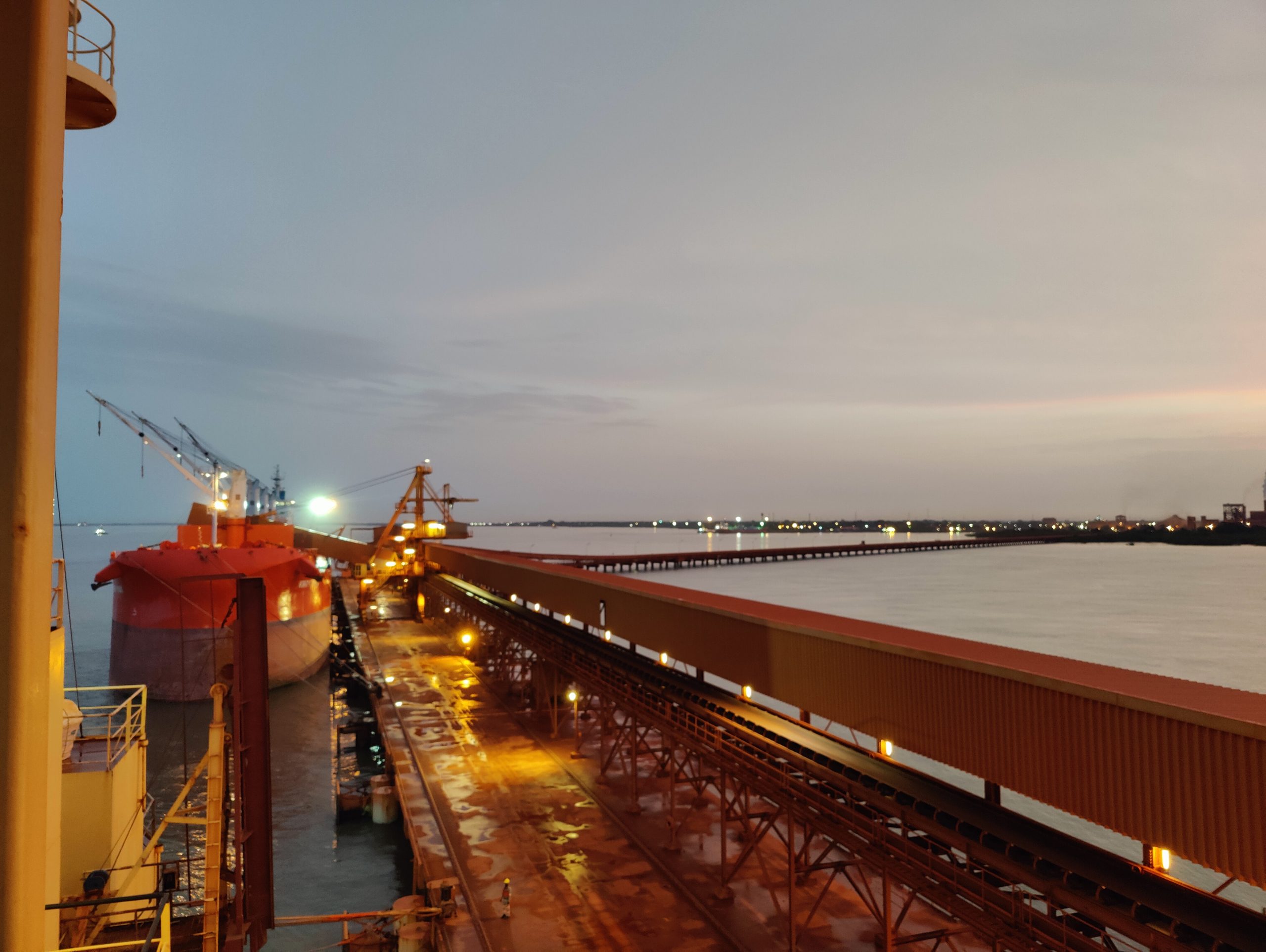
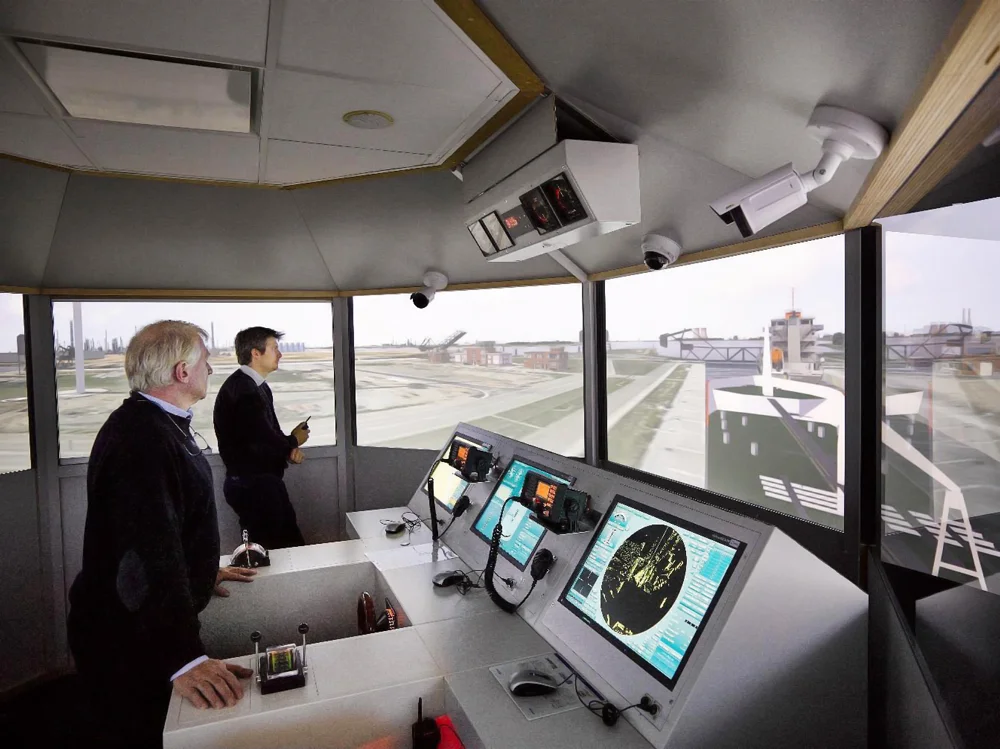
Pilots for Pilots
At AMTA, our training instructors are experts in ship manoeuvring, and their primary mission is to share their extensive knowledge and expertise with other pilots. AMTA offers training programs specifically designed to enhance candidates’ shiphandling skills. We believe that a strong foundation in basic shiphandling principles is essential for marine pilots to guide ships effectively. Too often, pilot training emphasizes local operational conditions rather than the fundamentals of shiphandling, which can lead to recurring accidents as pilots gain experience on the job.
Screening
Training a marine pilot is a significant investment of both time and resources. The responsibilities of a pilot are immense, and the potential consequences of an accident for a port or the environment are severe. Therefore, selecting individuals with the right skills is critical.
As an independent and impartial organization, AMTA conducts rigorous selection processes for marine pilots, tugboat captains, and mooring personnel. With the growth of private ports and the increasing size and complexity of vessels, we are convinced that only a thorough, fair, and transparent selection, training, and assessment process can ensure the expertise required for safely navigating ships into ports.
In collaboration with HR recruitment specialists, AMTA has identified job-specific skill sets tailored to marine industry roles. Beyond theoretical and technical assessments, candidates undergo practical exams using advanced simulators to demonstrate their real-world capabilities. This comprehensive approach assures pilot organizations and tugboat operators that the selected candidates are well-prepared for their roles.
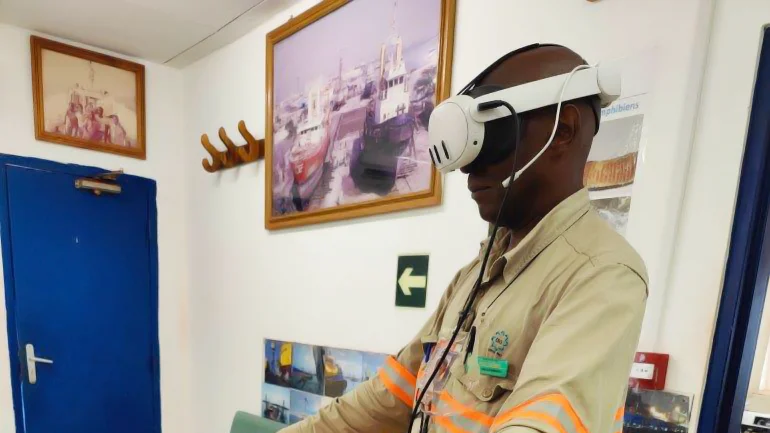
Theoretical Classes
AMTA offers specialized theoretical courses on manoeuvring for pilots and tugboat captains. The choice of tug type and the skills of the tug master have a significant impact on the success of manoeuvres. It is therefore vital for pilots to thoroughly understand both shiphandling principles and the operational capabilities of various tug types, such as conventional, Voith-Schneider, ASD, Rotor, and Carousel tugs.
Our theoretical classes take a practical, case-study-based approach, ensuring that participants can directly relate the concepts to real-world scenarios.
Practical Training
A solid theoretical understanding of manoeuvring is just the beginning. To master the art of shiphandling, hands-on experience is indispensable. AMTA offers two types of practical training:
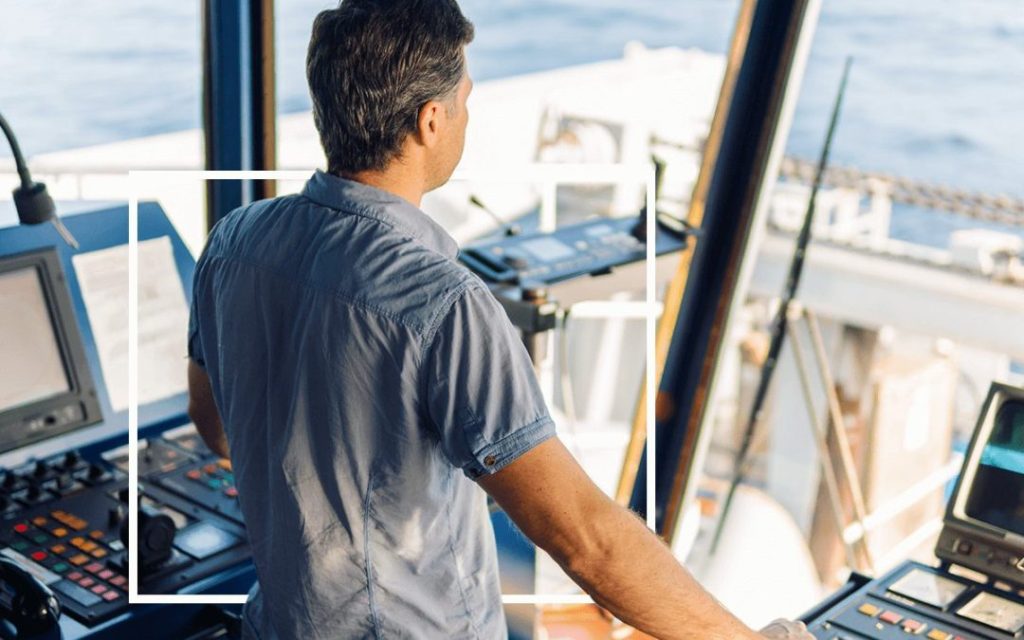
Simulator Training
AMTA utilizes cutting-edge simulators, including virtual reality (VR) systems, to train pilots and tugboat captains. These simulators enable participants to receive high-quality training remotely, eliminating the need for costly and time-consuming travel. Trainees can complete their coursework from their home country or even while stationed on a ship or pilot station, allowing them to maintain their professional responsibilities during the training period.
Basic Manoeuvring
- (Un)mooring ships in still water
- Swinging ships in still water
- Entering locks in still water
- (Un)mooring ships against the tide
- Using anchors for berthing
- Using radar during manoeuvres
Advanced Manoeuvring
- Swinging ships with following tide
- Swinging ships with head-on tide
- Swinging ships with different types of tugs
- (Un)mooring with following tide
- Entering locks with current
- Manoeuvring in dense fog
Advanced Manoeuvring
Effective manoeuvring relies on a strong mutual understanding of manoeuvring practices between the pilot and the tug master. This course allows pilots and tug masters to train together, with pilots performing manoeuvres while the ship is assisted by tugs operated by tug masters.
Various manoeuvres are carried out, including bow-to-bow towing, push-pull, and indirect towing, as well as the use of different types of tugs to demonstrate their influence on the operation. This course is highly valued by pilots and tug masters who work together, as it helps them gain a deeper understanding of each other’s capabilities and concerns.
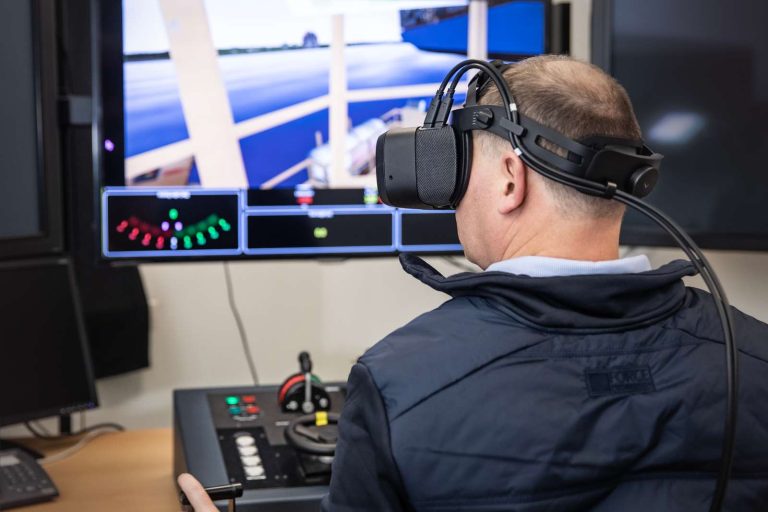
Simulator-Based Training
AMTA utilizes cutting-edge simulators, including virtual reality (VR) systems, to train pilots and tugboat captains. These simulators enable participants to receive high-quality training remotely, eliminating the need for costly and time-consuming travel. Trainees can complete their coursework from their home country or even while stationed on a ship or pilot station, allowing them to maintain their professional responsibilities during the training period.
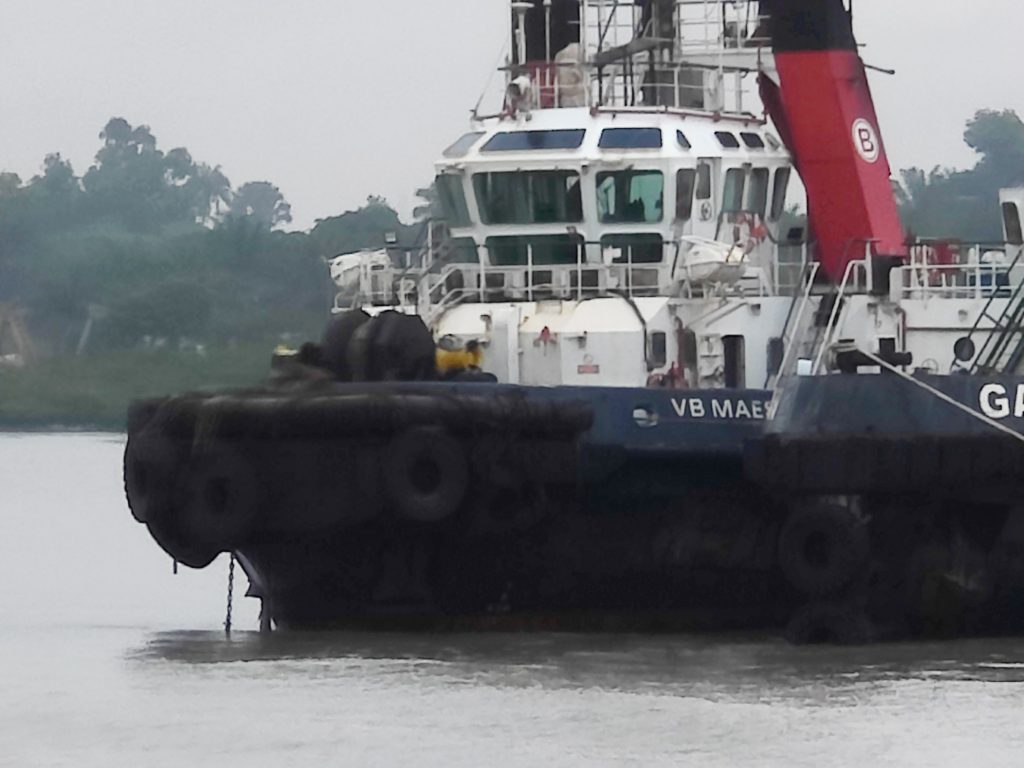
On-Site Training
For a more immersive experience, AMTA’s instructors can travel to the trainee’s location, providing real-world guidance alongside pilots and tugboat captains. This hands-on approach allows our experts to assist directly during live operations, ensuring that trainees gain invaluable practical knowledge in their specific operational environment.
Basic Manoeuvring
- (Un)mooring ships in still water
- Swinging ships in still water
- Entering locks in still water
- (Un)mooring ships against the tide
- Using anchors for berthing
- Using radar during manoeuvres
Advanced Manoeuvring
- Swinging ships with following tide
- Swinging ships with head-on tide
- Swinging ships with different types of tugs
- (Un)mooring with following tide
- Entering locks with current
- Manoeuvring in dense fog
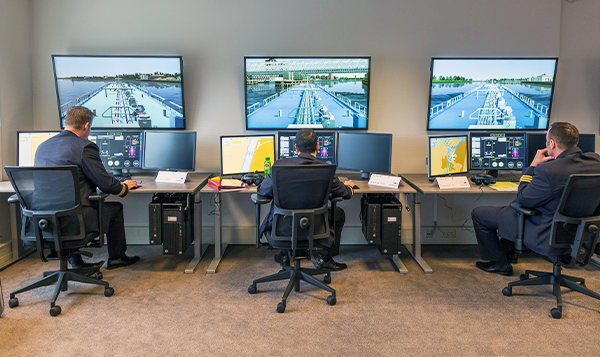
Combined Training
Effective manoeuvring depends on seamless collaboration and mutual understanding between the pilot and the tug master. This course is specifically designed to foster that partnership by enabling pilots and tug masters to train together. During the training, pilots execute various manoeuvres while tug masters assist with operations, using techniques such as bow-to-bow towing, push-pull methods, and indirect towing.
Additionally, the course explores the use of different tug types, such as Voith-Schneider, ASD, Rotor and Caroussel tugs, to highlight how each influences manoeuvres. This hands-on approach is highly valued by both pilots and tug masters, particularly those working in the same port, as it enhances their understanding of each other’s roles, capabilities, and challenges, ultimately improving operational efficiency and safety.
On-Site Training
AMTA goes beyond classroom and simulator-based learning by offering comprehensive on-site training. When required, our expert team travels to your port to collaborate directly with your pilots or tugboat captains. By boarding vessels and assisting staff during live operations, we ensure that training is grounded in the practical realities of your specific environment. This tailored approach helps your team apply their skills effectively under real-world conditions.
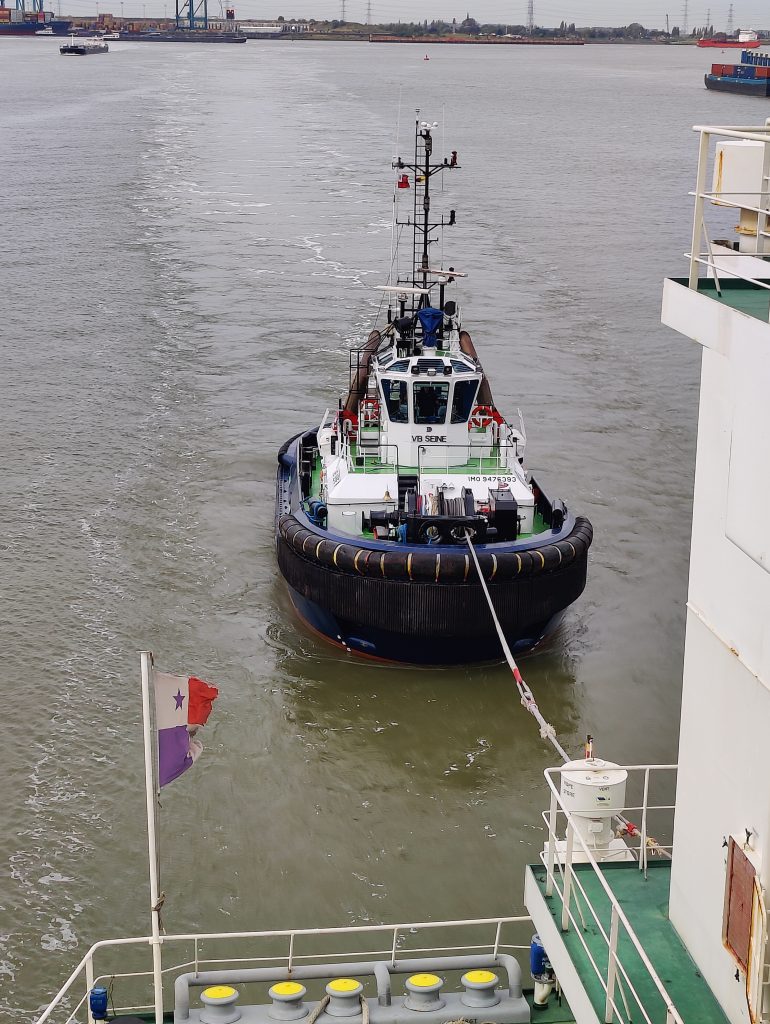
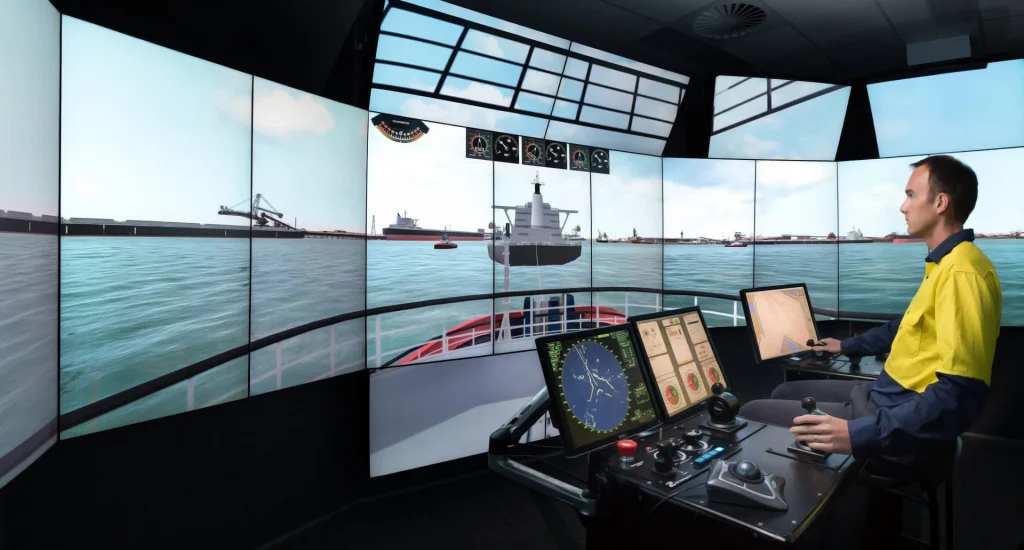
Assessment and Continuous Development
At the conclusion of every training program, AMTA instructors conduct a detailed assessment of each candidate’s competencies. This evaluation identifies strengths and highlights areas that require improvement. The results are discussed directly with the candidate, and where necessary, a personalized training program is designed to address specific development needs.
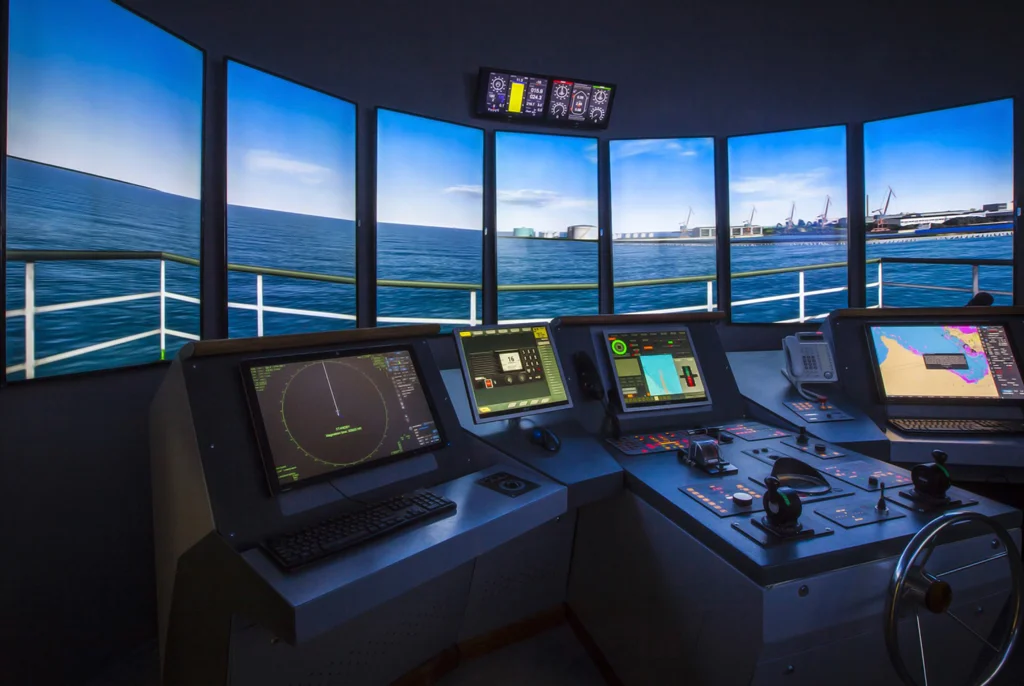
Elevate Your Skills with AMTA
Contact us today to learn more about our tailored pilot training programs.

